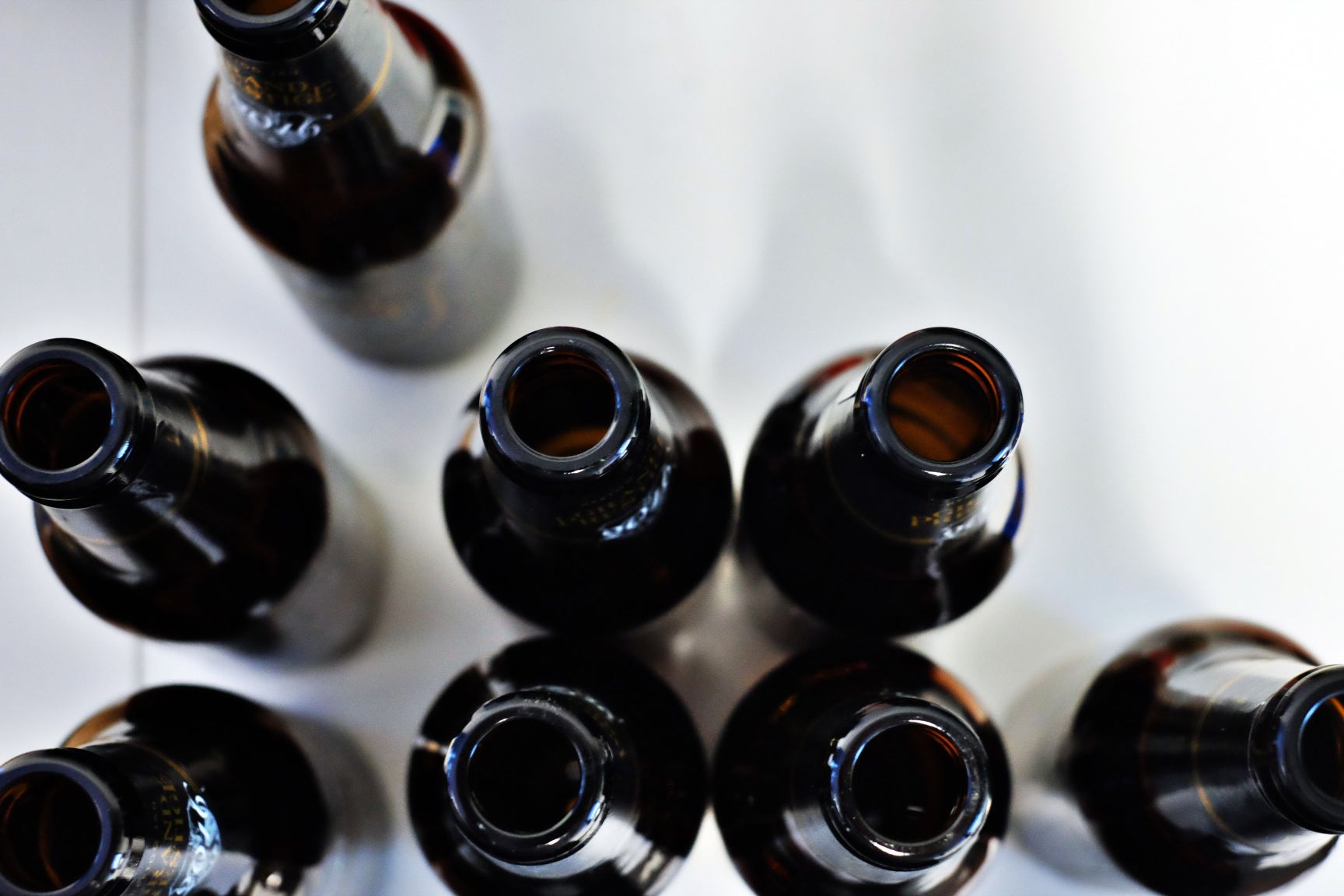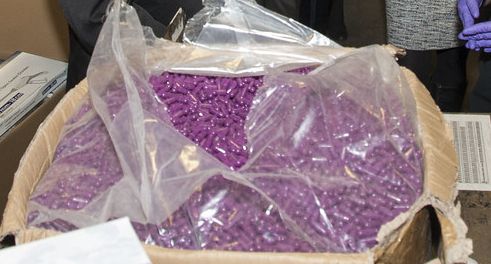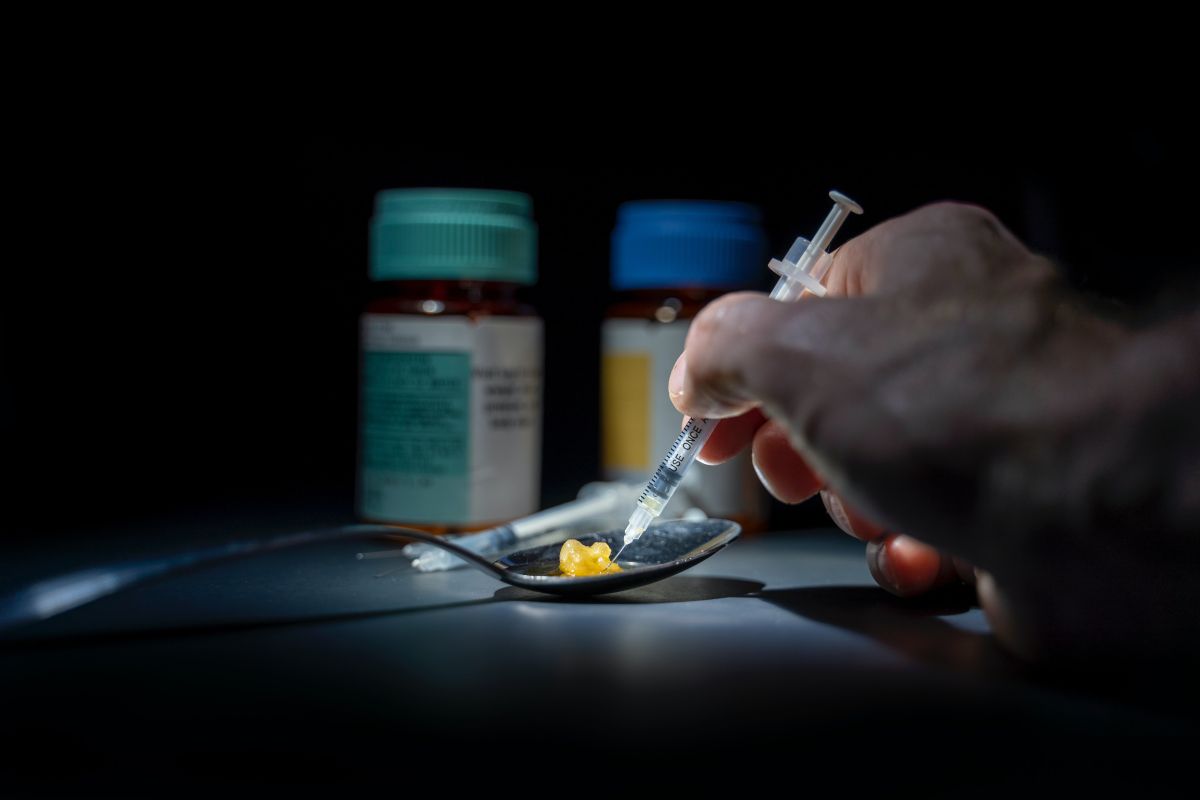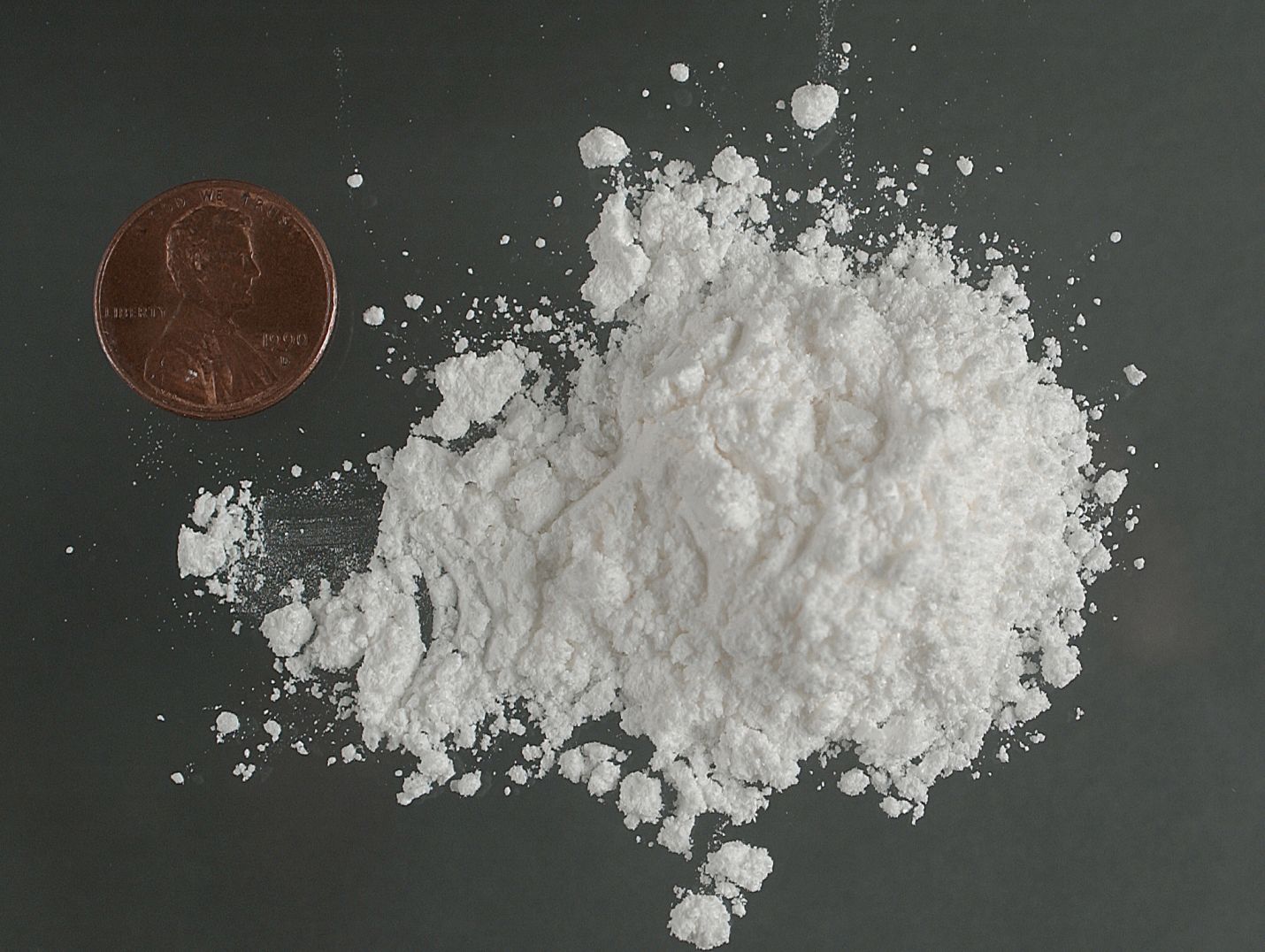Free Confidential Consultation: 408-370-9688 Or 800-811-1800
Knowing more about addiction helps you & those you love.
These resources will help you identify your situation, and reach out to someone who can assist you. Choose your preferred resource from the list below. You’ll be taken down the page to the correct section.
If you are in the Northern California region and need help right away, please call our San Jose office.
Is it time to seek treatment? For many of us, this question starts the process of recovery from addiction.
Before actually seeking treatment though, you’ll need to consider several factors. These factors determine whether someone’s truly ready for treatment. Without all of them, an individual won’t finish treatment and commit to a life free of substance abuse.
There are several contributing factors that determine whether or not an individual is ready to seek treatment for substance abuse disorder and addiction. These factors should be readily understood by the family of the individual they would like to see get into a treatment program.
Factor 1 – Admitting the problem. The individual has to admit that they have a problem, and that their life isn’t sustainable.
(This must come first. Until it happens, the individual or their family can’t do much.)
Factor 2 – Choose to get help. After admitting the problem, the individual asks for help treating their addiction.
When deciding on a treatment program, focus on the quality and level of care it provides. Fancy amenities don’t help; look for a history of effectiveness. For example, does the program staff people in long-term recovery?
Factor 3 – Acceptance of coaching. Coaching is the cornerstone of all treatment programs. Without the individual accepting that they need encouragement and direction from a coach, treatment can’t proceed.
It’s the coach’s job to explain how behavioral therapy results in successful recovery, and guide the individual through all the steps. Knowing this ahead of time, and understanding what’s involved, greatly increases the chances of success.
We want to help you in person of course. But if you’re outside of California, these resources can still help you.
Alanon and Alateen
757-563-1600
Alcoholics Anonymous World Services
Co-Anon
Information for families/friends of cocaine addicts.
Cocaine Anonymous
Support, links to meetings, phone lines and information.
Crystal Meth Anonymous
Support, links to meetings, phone lines and information.
Greater San Jose Area of Narcotics Anonymous
LifeRing Secular Recovery
800-811-4142
Marijuana Anonymous
Support, links to meetings, phone lines and information.
Marijuana Anonymous – Loved Ones of Addicts
Information for families/friends of addicts.
Nar-Anon
Support, links to meetings, phone lines and information for families/friends of addicts.
Narcotics Anonymous World Services
818-773-9999
National Association of Addiction Treatment Providers’ Addiction Industry Directory
Partnership for Drug-Free Kids
Pills Anonymous
Drug treatment support, links to meetings, phone lines and information.
SAMHSA.gov
Programs for Treatment, Connections, and Assistance
Santa Clara County Alcoholics Anonymous
408-374-8511
SMART Recovery
440-951-5357
Women for Sobriety
215-536-8026
The following signs and symptoms have been compiled from various sources including the CDC and National Council on Substance Abuse.
Please remember: If a person shows any of the following symptoms, it does NOT automatically mean that they’re on drugs. It could be stress, symptoms of depression, an illness or something else.
Whatever the cause, they may warrant attention, especially if the signs persist.
If you or someone you know displays several of these signs, then reach out to our team for help.
These organizations provide health-related aid nationwide.
Substance Abuse and Mental Health Services Administration: https://www.samhsa.gov/
Information, educational materials, treatment facility locator, and statistics regarding addiction.
National Institute on Alcohol Abuse and Alcoholism (NIAAA): https://www.niaaa.nih.gov/
301-443–3860
Free informational materials on all aspects of alcoholism, including the effects of drinking during pregnancy, alcohol use and the elderly, and help for cutting down on drinking.
National Alliance on Mental Illness (NAMI): https://www.nami.org/
National Institute on Drug Abuse (NIDA): https://www.drugabuse.gov/
800-622-HELP
Legal Advocacy
Support Systems Homes advocates within the legal system on behalf of its clients. We work with the criminal justice system — attorneys, judges, probation officers, and parole officers — to coordinate treatment for individuals with legal issues.
Have you been court-ordered to attend a treatment program? Come to Support Systems Homes! Our program satisfies those requirements.
If you’re in one of our programs and have legal issues, we can help with the following:
Effective treatment, and supportive living conditions following it, are vital stepping-stones to successful recovery. As a client and as a person, you deserve dignity and respect.
Addiction and alcoholism are not moral issues. They are chronic, dangerous, and ultimately fatal diseases.
Together they fall under the title of “Substance Use Disorder” or SUD, which you’ll see referenced on this website.
If you have questions about addiction—such as, “How do I know I have a problem?”—this is the page to read. It will help you determine if you have a problem with an addictive substance like alcohol or meth.
After reading about these drugs, we encourage you to contact us for help to recover.

General questions about addiction, SUD, and getting help.
Why is it called ‘substance abuse’?
People sometimes differentiate between taking a drug and drinking alcohol. While it’s true that meth or heroin have a much different effect on the body than the occasional beer, they are both technically “addictive substances.”
That’s why recovery centers like ours use the terms, “substance use” or “substance abuse.” They’re simplified terms for a universal reference.
What’s the line between drug use and drug abuse?
This is a very fine line. Especially when drug use by prescription turns into abusing the same drug (or a similar one).
Generally speaking, drug abuse happens when you’ve developed a dependence on the substance. Not just physically, but mentally as well. The drug-specific FAQs below have more information on what abuse of each substance does.
If you want to assess your current state, use this Assessment Form.
Where should drug addicts go for help?
If you’re in an emergency situation – for example, you just realized that you may have overdosed – call 911 right away.
If you’re struggling with addiction but aren’t currently in danger, then the best thing to do is call an addiction treatment center. You’re already halfway there, just by visiting this website!
What facilities are there to help addicts?
In the San Jose area, you have many options for help. Excellent hospitals, medical clinics, counselors, support organizations…and of course, rehab centers like ours. If you’re not sure where to start, give us a call. We’ll talk with you and direct you to the resource that fits your situation best.

If drinking is causing you problems with your health, relationships, job, finances, the law and/or in other areas of your life, it’s important to seek help. The effects of alcohol abuse are serious—even fatal.
How do I know I have a drinking problem?
Ask yourself these questions. They come from the CAGE questionnaire, used by doctor’s offices, to identify cases of alcoholism.
If you answered “YES” to two or more of the above questions, you may have a drinking problem.
What is Alcoholism?
Alcoholism is a disease that includes the following (according to the Diagnostic and Statistical Manual of Mental Disorders published by the American Psychiatric Association):
Why can’t alcoholics just stop drinking? The inability to stop drinking has little to do with willpower. Alcoholics are in the grip of an uncontrollable need for alcohol, and most require assistance to recover.
Often, those struggling with alcoholism are reluctant to seek treatment for a variety of reasons, including the perceived stigma associated with the disease, fear of withdrawal and a reluctance to be away from family and work obligations. With proper treatment and support, however, many stop drinking and rebuild their lives.
Third leading lifestyle-related cause of death: According to the CDC, excessive alcohol use is the third leading lifestyle-related cause of death for U.S. residents annually. The National Institute on Alcohol Abuse and Alcoholism reports 17.6 million Americans are alcoholics or have alcohol problems, like binge drinking and regular heavy drinking. Another 50 million, at least, are affected by alcoholism—accident victims, family members, friends, co-workers and others.
Homicides, suicides and other violent acts are more likely to be committed by persons who have been drinking. In fact, alcohol is a factor in 73% of all felonies in the U.S. Alcohol-related problems cost society approximately $185 billion per year. In human terms, the costs can’t be calculated—for example, in 2008, there were 11,773 drunk-driving deaths in the US.
Effects of Alcoholism
SHORT-TERM EFFECTS: Alcohol is a central nervous system depressant that causes numerous short-term issues. Some alcohol-related problems, such as motor coordination and cognitive impairment, slurring of speech, impaired memory, and blurred vision can manifest after drinking heavily over a short period of time. These tend to go away after the person sobers up.
LONG-TERM EFFECTS: Other effects of problem drinking are more permanent and develop gradually over time. The long-term effects of alcoholism include:
Treatment for Alcoholism
ALCOHOL REHAB PROGRAMS: Support Systems Homes has several different types of treatment and levels of care for alcoholics and problem drinkers.
Treatment may include detoxification—stabilizing a person by getting the alcohol safely out of their systems and helping them understand options for longer-term treatment. Detox can occur in a hospital or in a rehab center designed to safely administer detox.
Detox should be followed by residential, day and/or outpatient treatment in a Support Systems Homes facility. Along with counseling, education and therapies, our rehab programs also give you vital post-treatment resources, like legal assistance, job prep and training, housing and more.
HELPING FAMILY & FRIENDS: Because the support of family members and friends is so crucial to the recovery process, Support Systems Homes’ programs also offer a family program as part of your treatment for alcoholism. It’s also important for loved ones to begin their own healing process; our treatment center-based family programs can help with this, as can community-based programs such as Al-Anon/Alateen.
AFTERCARE: Although alcoholism can be treated, even if an alcoholic has been sober for a long time, he or she must continue to actively maintain a sober lifestyle. With this in mind, our treatment programs offer Aftercare to program graduates. Aftercare is a managed group that meets regularly to guide clients in long-term recovery efforts.
SELF-HELP GROUPS: Many treatment programs also include Alcoholics Anonymous (AA) meetings, or refer clients to other community-based self-help groups for ongoing recovery support. Although AA is generally recognized as an effective program for recovering alcoholics, not everyone responds to AA’s style or message. Support Systems Homes maintains a list of other available recovery approaches.

America’s biggest drug addiction threat has a name…and it’s fentanyl.
Sound familiar? You’ve probably heard the name but aren’t entirely sure what it is. Perhaps the most high-profile case tied to fentanyl is the musician Prince.
Though he may be the most famous victim to meet an untimely death due to this highly addictive drug, he is definitely not the only person to fall prey to its dangers.
What is Fentanyl?
Fentanyl is a powerful synthetic opioid that is similar to morphine, but is 50 to 100 times more potent. It is a schedule II prescription drug, and it is typically used to treat patients with severe pain or to manage pain after surgery. In its prescription form, fentanyl is known by such names as Actiq, Duragesic, and Sublimaze.
Forms of Fentanyl
When prescribed by a physician, fentanyl is often administered either by injection, transdermal patch, or by lozenge or lollipop. Most recent cases of fentanyl-related overdose and death in the U.S. are linked to illegally made fentanyl. It is sold through illegal drug markets for its heroin-like effect. It is often mixed with heroin and/or cocaine as a combination product—with or without the user’s knowledge—to increase its euphoric effects.
Non-pharmaceutical fentanyl is sold as a powder, spiked on blotter paper, mixed with or substituted for heroin, or as tablets that mimic other, less potent opioids. Street names for fentanyl or for fentanyl-laced heroin include Apache, China Girl, China White, Dance Fever, Friend, Goodfella, Jackpot, Murder 8, TNT, and Tango and Cash.
Dangers of Fentanyl
The high potency of fentanyl greatly increases the risk of overdose, especially if the user is unaware that a powder or pill contains fentanyl.
Since fentanyl is a narcotic, withdrawal is dangerous to undergo…especially outside a medically-supervised environment. The safest approach is professional medical assistance and detox at one of our California rehabilitation centers.

Heroin is an illegal, highly addictive drug. It is both the most abused and the most rapidly acting of the opiate/opioid family. Other opioids include oxycodone and hydrocodone, both used in prescription painkillers like Percocet.
How Do I Know if I Have a Heroin Problem?
Heroin Anonymous developed the questions below as a self-test to help determine whether you may have a heroin problem.
If you answered “YES” to one or more of these questions, you may have a problem with heroin.
What is Heroin, and How is it Used?
Heroin is an illegal, semi-synthetic drug processed from morphine, a substance extracted from the opium poppy. It is used as a recreational drug for the intense feelings of relaxation and euphoria it induces. Heroin is typically sold as a white or brownish powder or as a black, sticky substance known as “black tar heroin.”
Most street heroin is “cut” with other drugs or with substances such as sugar or starch. Heroin can also be cut with poisons like strychnine.
Heroin is usually dissolved and injected, or the powder is snorted or smoked. All forms of heroin are psychologically and physically addictive, and a tolerance to the drug builds quickly. IV or intramuscular heroin use poses special problems because of the potential for transmitting infectious diseases.
Heroin is a significant drug of abuse in the United States—hundreds of thousands of people in our country are addicted. Over the past decade, researchers have observed a shift in heroin use patterns, from injection to snorting and smoking. With this shift comes an even more diverse group of users.
A recent study by the National Survey on Drug Use and Health released by the Substance Abuse and Mental Health Services Administration (SAMHSA) showed the number of individuals struggling with heroin addiction has increased by 90%—from 213,000 to 399,000—since 2007.
Heroin use statistics: “Monitoring the Future,” an annual survey published by the University of Michigan, found that:
Effects of Heroin Use
SHORT-TERM EFFECTS: Soon after administration, heroin crosses the blood-brain barrier. Users report feeling a surge of intense pleasure (a “rush”). This is usually accompanied by a warm flushing of the skin, dry mouth, and a heavy feeling in the extremities. Nausea, vomiting, and severe itching may also occur.
After the initial effects, the heroin user will typically be drowsy for several hours. Mental function is clouded by heroin’s effect on the central nervous system. Cardiac function slows. Breathing also slows—sometimes to the point of death.
List of short-term heroin effects:
LONG-TERM EFFECTS: One of the most detrimental long-term effects of heroin abuse is addiction itself. Addiction is a chronic disease, characterized by compulsive drug seeking and use despite negative consequences, and by changes in the brain. Heroin also produces profound degrees of tolerance and physical dependence, which contributes heavily to abuse. Painful withdrawal symptoms occur if use is reduced abruptly.
List of long-term heroin effects:
Is There a Rapid Detox Option for Opiates/Opioids?
Yes. It’s called “Medically-Assisted Detox,” and it involves giving you a medication that flushes the opiate/opioid out of your system.
Two such medications exist: Buprenorphine and Suboxone. These can come in several forms, depending on whether you get it from a doctor/pharmacy or at a rehab center like ours. (We use both, depending on the individual.)
Both medications work quickly, but we keep you under medical supervision for a while after you take them. That way you’re kept safe during detox, and we’re there if you have an adverse reaction later.
Treatment for Heroin and Opiate/Opioid Addiction
Support Systems Homes provides a variety of effective treatments for addiction to heroin and other opiates (opioids). Some of these several may be used in conjunction, to best help you with recovery.
DETOXIFICATION/”DETOX”: The primary objective of detoxification is to relieve withdrawal symptoms, stabilize participants and prepare them for longer-term treatment. Symptoms of withdrawal (most of which peak between 24-48 hours after the last use) include restlessness, muscle and bone pain, insomnia, diarrhea, vomiting, cold flashes with goose bumps and uncontrollable leg movements.
Medications like Subutex may be used to minimize withdrawal symptoms. Medical professionals supervise all medications given at Support Systems Homes treatment centers.
RESIDENTIAL DRUG REHAB: Residential treatment participants come to live in a safe, supervised setting for 30 days or more. In our heroin treatment center, they can focus completely on recovering from their addiction. Participants receive drug education, individual counseling, group counseling, family counseling, introduction to community-based self-help groups and referrals to community resources.
THERAPEUTIC COMMUNITIES: Research published by The National Institute On Drug Abuse states that one of the most effective drug-free treatments are the therapeutic community (TC) programs lasting 3 to 6 months. TC programs are residential, with participants and therapists living together.
While staying in our TC rehab center you’ll receive therapy, education and practical activities. The program length gives participants the time they need to stabilize from their drug use to develop new, healthy behaviors and support networks.
OUTPATIENT TREATMENT: More intensive treatments may be followed by outpatient treatment—regular structured therapeutic groups and individual counseling several days a week, usually for several months. Outpatient participants have stabilized in terms of their drug use, and are appropriate for a level of care that isn’t monitored or structured 24/7.
COMMUNITY-BASED SELF-HELP GROUPS: Groups like Narcotics Anonymous, along with non-12-step-based programs, are designed to help addicts attain long-term abstinence. Group members gain new tools and support networks to deal with their addictions.
MAINTENANCE PROGRAMS: Some heroin addicts do not find complete abstinence feasible. In these cases, a maintenance approach—providing a small dose of medication so individuals can function without going into withdrawal—is employed.
Support Systems Homes uses methadone, buprenorphine (Subutex) and levomethadyl in our maintenance programs.
Methadone: About 20% of heroin addicts in the U.S. receive methadone maintenance treatment. Methadone has been used to mitigate opiate addiction for over 45 years. Properly prescribed, methadone relieves heroin cravings; this is crucial, as craving is a major reason for relapse.
Buprenorphine: Buprenorphine is used either for long-term maintenance or for medically supervised withdrawal (detoxification) from opioids. It has a higher degree of safety than with methadone and a less-symptomatic withdrawal syndrome. A doctor must prescribe and monitor the medication.
Levomethadyl (LAAM): Similar to methadone, though longer-acting LAAM is a synthetic opioid that can suppress symptoms of withdrawal. In 1993, the FDA approved the use of LAAM for treating clients addicted to heroin. Its long duration permits dosing just 3 times per week.

How Do I Know if I’m Addicted to Meth?
The Substance Abuse and Mental Health Services Administration (SAMHSA) developed the questions below as a brief self-test regarding drug abuse.
What is Methamphetamine, and How is it Used?
Methamphetamine (also known as meth, crystal meth, crystal, speed or crank) is a synthetic, illegally produced substance of the phenethylamine and amphetamine class of drugs. It is a powerful central nervous system stimulant, with effects lasting from 4 hours to several days, depending on purity and amount used. The drug’s euphoric effects are similar to, but longer lasting than, those of cocaine.
Meth is manufactured using over-the-counter cold and asthma medications containing ephedrine or pseudoephedrine. Among the other ingredients most commonly used in conjunction with ephedrine or pseudoephedrine are red phosphorous, hydrochloric acid, drain cleaner, battery acid, lye, lantern fuel, ammonia, muriatic acid and/or antifreeze.
Use: Methamphetamine can be snorted, smoked in a glass pipe or on foil, injected or ingested orally.
A rampant problem: Methamphetamine has long been a problem in the western part of the United States, especially here in California. In recent years, meth abuse has spread to the Midwest in abundance, and moved further east. There are now 1.4 million meth users in the United States.
Effects of Meth Use
Short-term effects: Meth releases a surge of dopamine, causing an intense rush of pleasure or prolonged feelings of euphoria. This is the primary effect that meth users seek. Meth gives an almost immediate “high,” causing the body to release high doses of adrenaline. This increases your heartbeat, attention and energy level.
Short-Term Effects of Meth Use (or Other Amphetamines):
Long-Term Effects of Meth Use (or Other Amphetamines):
Since methamphetamine is manufactured from toxic chemicals, it causes serious damage to the mind and body. Over time, meth destroys the brain’s dopamine receptors, making it impossible to feel pleasure. Permanent brain damage can occur. Deterioration of the body takes place and chronic abuse can lead to psychotic behavior. Those who inject the drug are especially susceptible to infectious diseases like HIV/AIDS and Hepatitis.
Rehab for Meth Addiction
Support Systems Homes provides several effective treatments and services for meth addiction. If it helps your treatment progress faster, we may use more than one of the following in conjunction with each other.
Detox: Meth usually processes through the body within 24-48 hours of the last dose. Meth Detox concentrates on helping the participant cope with the cravings for meth afterward as well as the withdrawal symptoms: exhaustion, insomnia, distorted thinking, memory problems, depression, low energy, and irritability. Our detox program helps stabilize you, and prepare you for longer-term treatment like a residential rehab program.
Residential drug rehab: Residential treatment participants come to live in a safe, supervised setting for 30 days or more. In a structured setting, you can focus completely on recovering from your addiction. Participants receive drug education, individual counseling, group counseling, family counseling, introduction to community-based self-help groups such as Narcotics Anonymous, and referrals to community resources.
Support Systems Homes Residential Treatment also offers the chance to form support networks with others in recovery, and to learn healthy lifestyle choices in terms of nutrition and exercise.
Therapeutic communities: Research published by The National Institute on Drug Abuse states that the most effective drug-free treatments are the therapeutic community (TC) programs lasting 3 to 6 months. TC programs are residential, with the clients and therapists living together. Group psychotherapy, individual counseling, education and practical activities are typically offered. The program length gives participants the time they need to stabilize from their drug use and to develop new, healthy behaviors and support networks.
Outpatient treatment: More intensive forms of treatment may be followed by outpatient treatment, which involves regular structured therapeutic groups and individual counseling that take place several days per week, usually for several months. Outpatient participants are those who are stabilized in terms of their drug use, so they can move to a level of care that is not monitored or structured 24/7.
Community-based self-help groups: Groups such as Narcotics Anonymous and Crystal Meth Anonymous, along with non-12-step-based programs, are designed to help meth addicts attain long-term abstinence. You’ll gain tools and support networks to deal with your addiction.

How Do I Know if I’m Addicted to Cocaine?
Read these questions (developed by Cocaine Anonymous) as a self-test for cocaine addiction:
If you answered “YES” to one or more questions, you may have a problem with cocaine or a similar mind-altering substance.
What is Cocaine, and How is it Used?
Cocaine is a powerfully addictive crystalline substance obtained from the leaves of the coca plant of South America. It’s a central nervous system stimulant, an appetite suppressant, and a topical anesthetic. Its possession, cultivation, and distribution are illegal for non-medicinal purposes almost worldwide.
Cocaine is generally sold on the street as a fine, white, crystalline powder. Street dealers dilute it with inert substances like cornstarch, talcum powder and/or sugar. Or with other active drugs like procaine (a chemically related local anesthetic) and similar stimulants.
Other forms of cocaine: Other forms include base/freebase and crack. Freebase is the base form of cocaine, as opposed to the salt form. It is practically insoluble in water, whereas the powder form is water-soluble.
Crack is a lower-purity form of freebase cocaine and contains sodium bicarbonate. Crack rocks appear as off-white nuggets with jagged edges, with a slightly higher density than candle wax. Purer forms of crack resemble a hard, brittle plastic, in crystalline form.
The National Survey on Drug Use and Health (NSDUH) estimates that in 2007 there were 2.1 million current cocaine users—of which about 610,000 were crack users. Adults 18-25 have a higher rate of cocaine use than any other age group.
The same survey showed that nearly 1.6 million Americans meet the DSM-IV criteria for dependence or abuse of cocaine (in any form). Data from the Drug Abuse Warning Network (DAWN) shows that cocaine was involved in 548,608 emergency room visits in 2006.
Use: The powdered salt form of cocaine can be snorted, or dissolved in water and then injected. The drug can also be used orally and smoked.
Effects of Cocaine Abuse
SHORT-TERM EFFECTS: Cocaine’s effects occur almost immediately after one dose, and disappear within a few minutes to an hour. The duration of cocaine’s euphoric effect depends upon how you take it. The faster the drug is absorbed, the more intense the resulting high—but also the shorter the duration. The high from snorting is relatively slow, but it may last 15 to 30 minutes. The effects from smoking are immediate but may last only 5 to 10 minutes.
Short-term cocaine effects include:
LONG-TERM EFFECTS: Different routes of cocaine administration can produce different adverse effects. Many chronic cocaine users lose their appetite and experience significant weight loss and malnourishment.
Long-term cocaine effects include:
How is Cocaine Treated?
Support Systems Homes specializes in cocaine rehabilitation for Northern California. We provide several treatment options, which treat cocaine addiction under different guidelines. Depending on the severity of addiction, we may use more than one treatment.
DETOXIFICATION: Detox from cocaine can be painful. But it’s a necessary process on the way to recovery. Support Systems detox centers help to mitigate withdrawal symptoms, so you can safely get the drug out of your system.
Cocaine withdrawal symptoms can include intense cravings, anger, paranoia, extreme fatigue, depression, nausea/vomiting, muscle pain and trouble sleeping. This is why Support Systems Homes employs medically trained professionals to conduct detox at our rehab centers.
Once detox has completed, we place you in a longer-term treatment option best suited to your needs.
RESIDENTIAL TREATMENT (Residential/Inpatient Drug Rehab): Residential cocaine treatment involves living in a safe, supervised setting for 30 days or more. In this structured setting, you can focus completely on recovering from addiction. Participants receive drug education, individual and group counseling, family counseling, introduction to community-based self-help groups (see below), and referrals to community resources.
We also help you develop a plan for long-term freedom from cocaine, and a support network with others in recovery like you.
OUTPATIENT TREATMENT: More intensive forms of treatment may be followed by outpatient treatment—regular structured therapeutic group and individual counseling several days a week, usually for several months. If you’re stable enough that you don’t need monitoring or structured activities 24/7, you may be offered outpatient treatment.
Community-based self-help groups: Groups like Cocaine Anonymous and Narcotics Anonymous, along with non-12-step-based programs, are designed to help addicts attain long-term abstinence. They provide tools and support networks to help deal with serious addictions.

It may sound impossible. But you can in fact abuse marijuana! Abuse cases usually stem from fixating on the use of marijuana too often.
Marijuana addiction needs professional treatment, like any other abused drug. Support Systems Homes’ rehab programs cover marijuana detox, treatment for addiction, and supportive rehab centers.
How Do I Know if I Abuse Marijuana?
The following questions are based on the American Psychological Association’s clinical diagnosis test of marijuana addiction. In the last year:
If you answered “YES” to 3 or more of these questions, you may have a problem with abusing marijuana.
What is Marijuana, and How is it Used?
Marijuana (“pot,” “weed,” “herb,” etc.) is a greenish-gray mixture of the dried, shredded leaves, stems, seeds, and flowers of Cannabis sativa, the hemp plant. The major active chemical in marijuana is THC, which causes the mind-altering effects of marijuana intoxication. The amount of THC (which is also the psychoactive ingredient in hashish) determines the potency and, therefore, the effects of marijuana.
Use: Most users smoke marijuana in hand-rolled cigarettes, called joints, among other names; some use pipes or water pipes called bongs. Marijuana is also used to brew tea and is sometimes mixed into foods.
Marijuana is the most commonly used drug in the U.S., with 15.2 million past-month users, according to the 2008 National Survey on Drug Use and Health (NSDUH). That year, marijuana was used by 75.6% of current illicit drug users and was the only drug used by 53% percent of them.
Marijuana use is widespread among adolescents and young adults. And because today’s marijuana is up to 10 times more potent than the marijuana of past decades, it poses serious problems. The Drug Abuse Warning Network (DAWN), a system for monitoring the health impact of drugs, estimated that in 2008 marijuana was a contributing factor in over 374,000 emergency-room visits in the United States.
Two-thirds of these clients were male, and 13% were between the ages of 12 and 17.
Is Marijuana a ‘Gateway Drug?’
You may have heard marijuana called a ‘gateway drug’ – a drug that lures you down a path of abuse, trying other, “harder” drugs like opioids.
This is not necessarily true. Some people who use marijuana do try other drugs. However, the majority do not exhibit this behavior.
The National Institute on Drug Abuse has published an article on this: Is marijuana a gateway drug?
Can I Smoke Weed/Marijuana While Pregnant?
You may have heard that smoking marijuana during a pregnancy helps with morning sickness. While this can happen in some cases, the negatives outweigh the positives. Marijuana does affect the unborn, leading to serious problems later in life.
For more details, read our blog post: Can I Smoke Marijuana While Pregnant?
Effects of Marijuana Abuse
When marijuana is smoked, its active ingredient, THC, travels throughout the body (including the brain) to produce its many effects. THC attaches to sites called cannabinoid receptors on nerve cells in the brain, affecting the way those cells work. Cannabinoid receptors are abundant in parts of the brain that regulate movement, coordination, learning and memory, higher cognitive functions such as judgment, and pleasure.
Short-term effects include:
Long-term effects include:
*Marijuana smoke contains some of the same cancer-causing compounds as tobacco, sometimes in higher concentrations. Studies show that someone who smokes five joints per week may be taking in as many cancer-causing chemicals as someone who smokes a full pack of cigarettes every day, thus long-term use poses a risk of cancer.
Treatment Options for Marijuana Abuse in Northern California
If you’re ready to stop using marijuana, seek treatment at Support Systems Homes. Our treatments for marijuana abuse are as follows. If you would be better served by more than one, we may combine several treatments.
DETOXIFICATION: Detox helps to clean out your system. It helps you cope with cravings and other withdrawal symptoms, so you’ll be ready to begin a longer-term program like residential treatment.
RESIDENTIAL/INPATIENT TREATMENT: Clients participating in residential treatment leave their homes to live in a safe, supervised setting for 30 days (or more). In our rehab setting you’ll focus completely on recovering from addiction. Participants receive drug education, individual counseling, group counseling, family counseling, introduction to community-based self-help groups (see below), long-term planning to stay clean, and support networks.
OUTPATIENT TREATMENT: More intensive treatments may be followed by outpatient treatment, regular structured therapeutic groups and individual counseling several days a week, usually for several months. Outpatient participants are those who are stable in terms of drug abuse, and who are appropriate for a level of care that isn’t monitored or structured 24/7.
COMMUNITY-BASED SELF-HELP GROUPS: Groups like Marijuana Anonymous and Narcotics Anonymous, along with non-12-step-based programs, help addicts attain long-term freedom from drug abuse. They provide new tools and support networks to deal with addictions.

The “Opioid Crisis” rages across the entire United States. Over 130 people die every day from opioid overdoses.
Do I Have a Prescription Drug/Opioid Abuse Problem?
If you are prescribed drugs such as painkillers and are concerned you have a problem, try answering these questions.
If you answered “YES” to one or more of these questions, you may have a problem with prescription drugs.
Effects of Prescription Drug/Opioid Abuse
The effects of prescription drug abuse vary depending on the type of medication being abused. This table lists general short- and long-term effects to expect, categorized by the type of opioid/opiate.
SHORT-TERM EFFECTS
Opioids (opiates), including OxyContin, Oxycodone (Percocet), Hydrocodone (Vicodin), Lortab, etc.:
CNS [Central Nervous System] Depressants (such as benzodiazepines, i.e. Valium, Ativan, Xanax or barbiturates such as phenobarbital):
Stimulants (i.e. amphetamines such as Dexedrine and Adderall):
LONG-TERM EFFECTS
Opioids:
CNS Depressants:
Stimulants:
Treatment for a Prescription Drug/Opioid Addiction
Rehabilitation from prescription drug abuse/overuse follows about the same process as rehabilitation from an opiate, like heroin.
At Support Systems Homes, we provide a variety of effective treatments and services for addiction to prescription medications. Depending on which rehab method would be most successful, we may combine several of the following.
(All treatments are given at our California rehab centers by certified medical professionals.)
DETOX: Many types of prescription medication cause severe addiction when used over time. Withdrawal from the medication is painful and potentially dangerous. To minimize risk, we always perform a detox in our rehab centers, where a nurse or doctor is monitoring you the whole time.
Detoxification helps you stabilize physically. Support Systems staff helps you cope with cravings and other withdrawal symptoms. Afterward we help you find a suitable longer-term rehab program, such as residential treatment.
RESIDENTIAL/INPATIENT REHAB: Clients participating in residential treatment leave their home environment to live in a safe, supervised setting for 30 days or more. In this structured setting, you can focus completely on recovering from prescription drug addiction.
Participants receive drug education, individual counseling, group counseling, family counseling, introduction to community-based self-help groups (see below), and referrals to community resources. We help you develop a plan to achieve and maintain long-term abstinence.
OUTPATIENT TREATMENT: More intensive treatment regimens may be followed by outpatient treatment—regular structured therapeutic group/individual counseling several days a week. Outpatient treatment usually lasts several months.
Outpatient participants are those who are stabilized in terms of their drug use, and who are appropriate for a level of care that isn’t monitored or structured 24/7.
COMMUNITY-BASED SELF-HELP GROUPS: These groups such as Alcoholics Anonymous, Pills Anonymous and Narcotics Anonymous along with non-12-step-based programs are designed to help addicts attain long-term abstinence while gaining new tools and support networks to deal with their addictions.

What are Psychedelics, and How are They Used?
Psychedelics occupy a unique space in the world of substances. They are often used in spiritual contexts, and have been for centuries. Some treatment centers even use psychedelics as a treatment for mental disorders, and to help recover from addiction to other substances!
While this may sound like a promising future for psychedelics (and there is cause for hope), it doesn’t mean they’re “safe to use.”
They can still produce a dependence, either from frequent use or from developing an emotional ‘need’ for the effects of the drug.
Psychedelics are taken orally (via tablets or in liquids), or absorbed through the skin.
Effects of Psychedelics Abuse
The biggest danger of psychedelic use comes from their unpredictability. One single “bad trip” can hurt you in many different ways. Think of undergoing effects like these:
You might think these would only happen on a drug like LSD, and never with a substance like ayahuasca/yage. However, it’s a common enough experience throughout the psychedelic family that we urge caution.
You can also overdose on psychedelics. Such overdoses are painful, frightening, and even permanently damaging. For example, an LSD overdose can produce any (or all) of these effects:
Rehab Programs for Psychedelics Abuse
If you or someone you know appears dependent on using a psychedelic substance, seek treatment. Support Systems Homes provides all treatment options for substance abuse. Of them, these are what we recommend for psychedelic abuse.
DETOXIFICATION/”DETOX”: Long-term use, or an overdose, means you need to get the substance out of your system. We can use medications to clean your system, while you remain under safe medical supervision. Once detox completes, we’ll connect you with a longer-term rehab program suitable to your lifestyle.
RESIDENTIAL DRUG REHAB: Residential Treatment clients stay in a safe, supervised setting for 30 days or more. In a structured setting, you can focus completely on recovering from your dependence. You’ll receive drug education, individual counseling, group counseling, family counseling, and referrals to community resources.
OUTPATIENT TREATMENT: In some cases of psychedelic use, a less-intensive treatment option like outpatient works best. Clients attend regular, structured therapeutic group/individual counseling several days per week, usually for several months. This way you maintain your normal work/school routine, while you return to a clean & long-term recovery.
Now that you know a little more about addictive substances, rehab options, and the help available, please remember…addiction is a disease. You can reclaim your life with treatment.
If you need help or more information, contact the Support Systems Homes team today.
800-811-1800